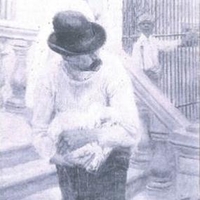Bringing the Laboratory Dog Home
Elizabeth Stuart Phelps and the Antivivisection Narrative
DOI:
https://doi.org/10.52537/humanimalia.9995Abstract
This essay considers the role of popular fiction in the vivisection debates of the late-nineteenth and early-twentieth centuries. Specifically, it argues that the fictional narratives of American author Elizabeth Stuart Phelps (a vociferous proponent of humane reform in New England) infused the anti-vivisection movement with a sense of urgency. By exploiting the formal properties of the novel, Phelps encouraged readers to reimagine the anonymous laboratory dog both as a surrogate child and as private property. In doing so, her imaginative literature illustrated, in ways that other discursive forms did not, how vivisection corroded fin de siècle America’s most sacrosanct values.
Downloads

Published
Issue
Section
License

This work is licensed under a Creative Commons Attribution-NonCommercial 4.0 International License.









